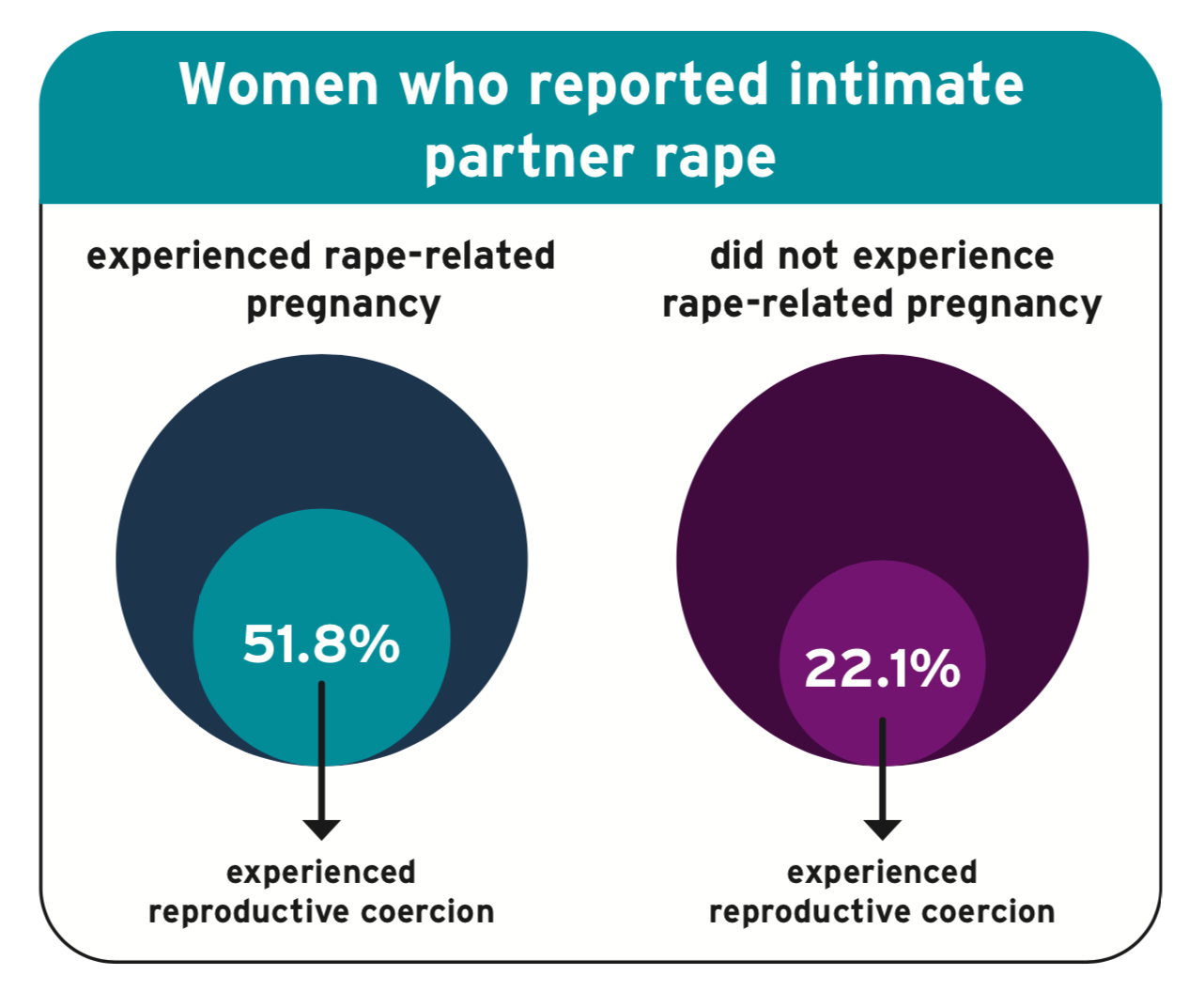Rape-Related Pregnancy: New Research and Talking Points
“Rape-Related Pregnancy and Association with Reproductive Coercion in the U.S.” is the first nationally representative study of its kind since 1996, and uses data from the 2010-2012 National Intimate Partner and Sexual Violence Survey (NISVS) to identify rates of rape-related pregnancy across sexual and intimate partner violence and how reproductive coercion appears in those situations.

The National Sexual Violence Resource Center compiled talking points on this research, including highlighting the impacts of intimate partner rape on rape-related pregnancy and the high associations between reproductive coercion and rape-related pregnancy. The NSVRC also released a podcast with Dr. Kathleen Basile of the Centers for Disease Control and Prevention, lead author of the research study.
 In both the podcast and the talking points, this research calls on important implications for prevention. Dr. Basile reminds listeners on the podcast that primary prevention through engaging boys at a young age can decrease both sexual and intimate partner violence and decrease the negative reproductive health outcomes associated with violence. The high association between rape-related pregnancy and reproductive coercion calls to a need for prevention and sexual health education strategies to address reproductive coercion in all forms, including condom refusal and removal, birth control sabotage, and forced pregnancy.
In both the podcast and the talking points, this research calls on important implications for prevention. Dr. Basile reminds listeners on the podcast that primary prevention through engaging boys at a young age can decrease both sexual and intimate partner violence and decrease the negative reproductive health outcomes associated with violence. The high association between rape-related pregnancy and reproductive coercion calls to a need for prevention and sexual health education strategies to address reproductive coercion in all forms, including condom refusal and removal, birth control sabotage, and forced pregnancy.
Sexual and reproductive health services should be incorporated with survivor support services, and the healthcare sector can play a role in prevention with trauma-informed routine health assessments. Partnering across sectors and across movements impacts prevention, too. Women, especially women of color, have been organizing around reproductive justice as a human right to center bodily autonomy and the right to safe communities. These goals are similar to those of the anti-violence field, and draws on an opportunity to collaborate.
Find the NSVRC’s talking points here, and check out their podcast with Dr. Kathleen Basile here. The NSVRC is taking questions on this research, which they will then answer and release in a blog. Email NSVRC questions with the subject line “rape-related pregnancy” by November 8th to be included.
